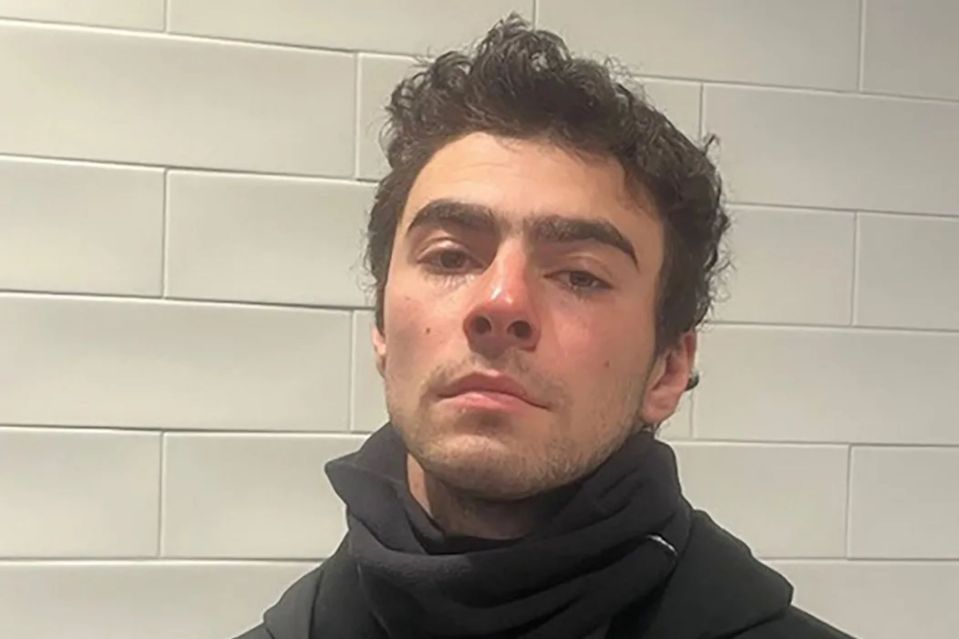My sister felt a ‘worm in her brain’ but it was shrugged off – she was living with a killer condition that took her life
A woman who doctors diagnosed as mentally ill actually had a fatal illness that ultimately claimed her life.
When Vanessa Rudden began having hallucinations, she was sectioned for schizophrenia; however, according to her sister, her symptoms were most likely brought on by cancer.
After learning she had a brain tumor, Georgina Doherty, 46, was saddened when her sister, Vanessa, 44, passed away suddenly in October 2018.
Vanessa was diagnosed with schizophrenia in her twenties after exhibiting inexplicable behavioral signs such as paranoia and hallucinations.
However, it wasn’t until her last year of life that she had an MRI after having a seizure, and it was then that a brain tumor—which is believed to be the true cause of her symptoms—was found.
She was diagnosed with grade 4 glioblastoma, a kind of cancer that begins as a brain cell growth.
Read more on cancer
The tumor, which was the size of an agolfball, had been growing in her left temporal lobe for more than ten years without anyone noticing.
Georgina is now working with the charity Brain Tumour Research to lobby for improved research since she thinks the tumor might have influenced her sister’s behavior.
According to the Manchester charity worker, Vanessa was the party’s lifeblood.
“She was passionate about her work, loved being among people, and shared her amazing musical talent.
“Vanessa might still be here if the scan had been completed sooner.
“She even said she felt like there was a worm in her brain, but doctors dismissed it, calling her mentally ill.”
The signs and symptoms of cancer
Over the years, Vanessa’s symptoms grew worse, resulting in several hospital stays and her being placed under the MentalHealth Act after she went on a hunger strike to protest her care.
Vanessa had a debulking operation to remove the majority of the tumor when it was found, but the doctors were unable to give her much hope and informed her she only had a few months to live.
“Vanessa’s courage and strength in the face of this news were remarkable,” Georgina stated.
“She made a bucket list of things she wanted to do, including planning her funeral, as soon as she realized how little time she had left.
“I felt cheated that I’d be losing my sister.”
The most common symptoms of a brain tumour

Every year, around 12,000 British people receive a primary brain tumor diagnosis; approximately half of them are malignant, and 5,300 of them pass away.
According to the Brain Tumour Charity, the condition is the most fatal malignancy in children and adults under 40.
Only 12% of adults survive five years after being diagnosed with a brain tumor, which lowers life expectancies by an average of 27 years.
Non-cancerous benign tumors are the two primary categories; they grow more slowly and are less likely to recur following therapy.
Malignant brain tumors are more prone to recur and can either originate in the brain or spread there from other parts of the body.
According to the NHS, brain tumors can result in headaches, seizures, nausea, vomiting, and memory issues.
They may also result in speech or visual issues, personality changes, or paralysis on one side of the issue.
The following are the top nine symptoms:
- Headaches
- Seizures
- Feeling sick
- Being sick
- Memory problems
- Change in personality
- Weakness or paralysis on one side of the body
- Vision problems
- Speech problems
You should see your general practitioner (GP) if you experience any of these symptoms, especially a headache that feels different from the ones you often get.
From the NHS
With the help of her mother, Mary, who moved in to care for her, Vanessa overcame the odds and lived for an additional ten months.
She kept crossing things off her bucket list, which included going to her former university in Huddersfield, having a steak supper, and spending time with her family.
In October 2018, she finally succumbed to her sickness and died surrounded by her loved ones.
Read More on The US Sun
“Georgina’s commitment to spreading awareness about Vanessa’s story and the impact of brain tumors is incredibly inspiring,” stated Ashley McWilliams, Community Development Manager at Brain Tumour Research.
“These tragic events highlight the importance of raising awareness and funding research into brain tumours so that more people can receive the correct diagnosis and better treatments.”
Note: Every piece of content is rigorously reviewed by our team of experienced writers and editors to ensure its accuracy. Our writers use credible sources and adhere to strict fact-checking protocols to verify all claims and data before publication. If an error is identified, we promptly correct it and strive for transparency in all updates, feel free to reach out to us via email. We appreciate your trust and support!














